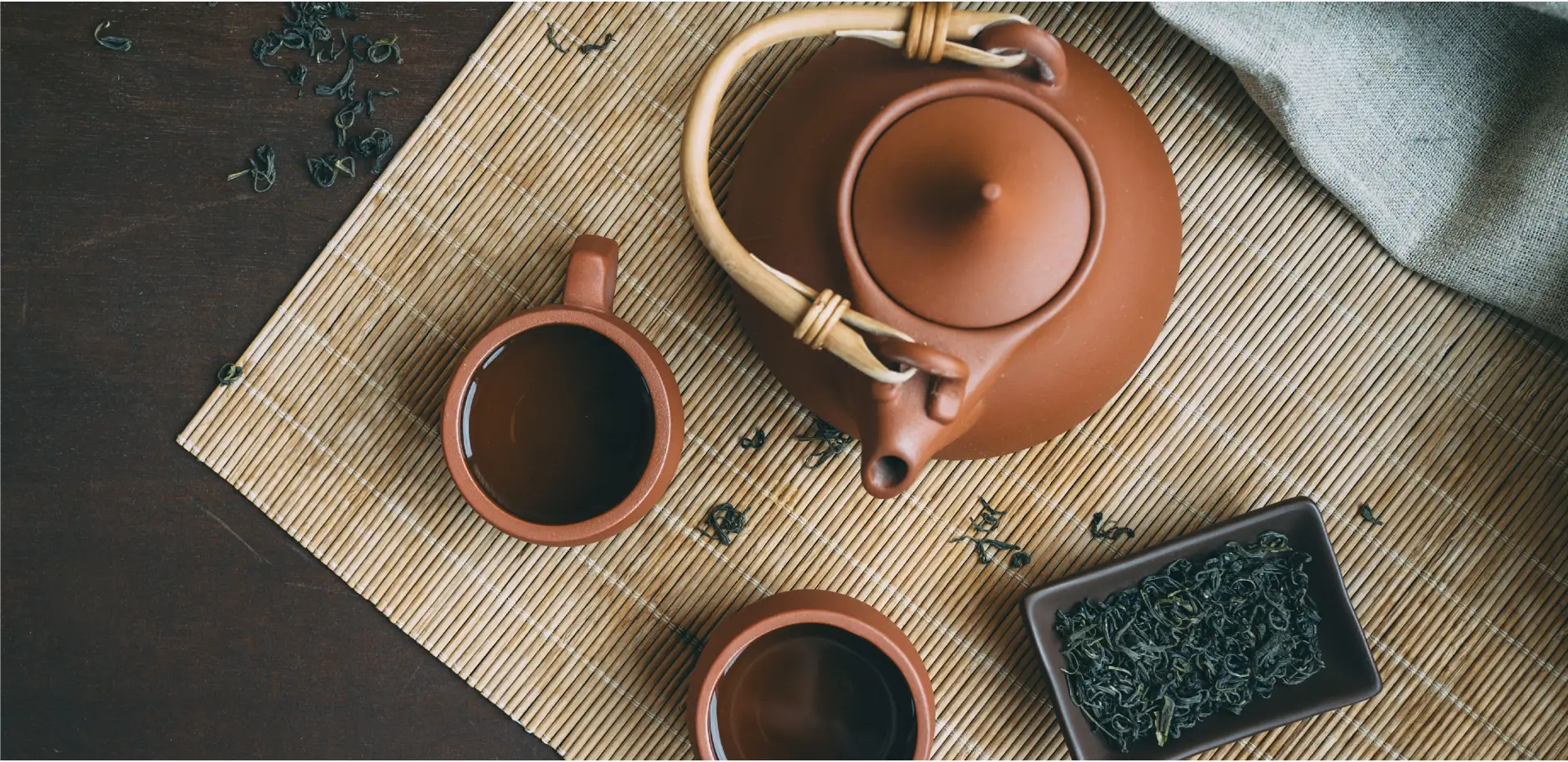
- WeChat Mini Program
- Getting here
- Login | Register
Tastes of Macau, Artisan of Flavor
Andrew U, Tea Master of Galaxy Macau and National Tea Sommelier Champion, shares with you his passion for Chinese tea culture through innovative brewing methods and a curated selection of the finest teas from different Chinese regions.
Macau's Tea Culture Unveiled
Tea Master's Handpicked Selection
Since its discovery in China thousands of years ago, tea has been an integral part of Chinese life and culture. To celebrate this long-standing heritage and enrich your dining experience, Galaxy Macau's award-winning tea experts fuse wellness, culture and tea appreciation into one delightful journey; while innovative brewing methods and an ingenious blend of eastern and western tea traditions exemplify Macau’s unique place in history and world gastronomy.
Tea Master Andrew U
Champion of the 2018 National Competition for Tea Sommeliers. Well-versed in Chinese tea traditions and constant explorer of new brewing techniques.
Tea Ambassador Iris Yang
Champion of the National Competition for Tea Sommeliers – Greater Bay Area; represented Macau in the 2023 National Competition for Tea Sommeliers.
Chinese Regional Tea Culture
Northern Tea Culture
In the tea houses of the north the beverage serves as a catalyst for social gatherings and is an integral part of folk culture.
Chiu Chow Tea Culture
Listed as an Intangible Cultural Heritage of China, the unique and refined ritual of Kung Fu Tea is a testament to Chiu Chow people's love for tea.
Lingnan Tea Culture
The unique Cantonese "yum cha" culture turns tea appreciation into a social occasion where exquisite and delicious dim sum is shared with loved ones.
Macau Tea Culture
A tea trading post in the 17th century, Macau continues to play a special role in promoting tea culture, with influences from the East and West.
Tips on Tea Appreciation
The color and flavor of the brew are determined by various factors. Aside from the tea variety and geographical conditions in which the tea is grown, the processing method also plays a crucial role. Depending on the degree of oxidation, Chinese tea can be classified into six categories: green, yellow, white, oolong, black and post-fermented, and each comes with different health benefits.
-

-

-

Green Tea (unfermented)
Benefits: Packed with antioxidants; clears the mind; good for the skin
Examples: Dragon Well, Bi Luo Chun
-

-

-

Yellow Tea (lightly fermented)
Benefits: Nourishes the spleen, stomach and lungs; lowers blood sugar level
Examples: Jun Shan Silver Needle, Mengding Yellow Buds
-

-

-

White Tea (very lightly fermented)
Benefits: Nourishes the lungs; removes toxins; reinvigorates the senses
Examples: Silver Needle, White Peony
-

-

-

Oolong Tea (half fermented)
Benefits: Aids digestion; lowers blood sugar level
Examples: Anxi Tieguanyin, Phoenix Dancong
-

-

-

Black Tea (fully fermented)
Benefits: Aids digestion; lowers blood sugar level
Examples: Jin Jun Mei, Lapsang Souchong
-

-

-

Post-fermented Tea
Benefits: Aids digestion; breaks down fat
Examples: Ripe Pu-erh, Liu An
-

-

-

Curated Tea Collection
Pak Loh Chiu Chow Signature Tea
The enticing aroma of roasted oolong is enhanced by fragrant osmanthus and sweet, zesty fingered citron.
Pang's Kitchen Guangdong Signature Tea
Aged mandarin peel from Xinhui adds depth and fruitiness to mellow white tea.
Bei Shan Lou Northeast Signature Tea
The distinct aroma of American ginseng comes through the mellow blend of post-fermented tea and pine needle tea.
Galaxy Macau Tam Chai Yu Chun Tanka Signature Tea
Also known as "fisherman's tea", the post-fermented Liu An is packed with health benefits, while chrysanthemum and monk fruit offer extra flavor.
Putien Loquat Signature Tea
Hailed for their effectiveness in treating respiratory diseases, fritillary bulb and loquat also make for a soothingly delicious drink.
Galaxy Tea Dinner Series
Award-winning tea master Andrew U will collaborate with a different master chef of Galaxy Macau to present a tasting experience like no other, joined by an outstanding team of tea masters from the Tea Art Professionals' Association of Macao with traditional calligraphy and Chinese string instrument performances.

